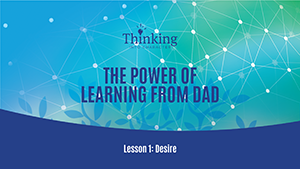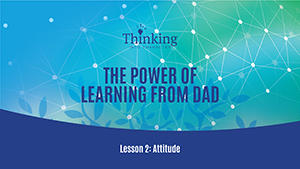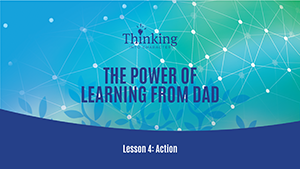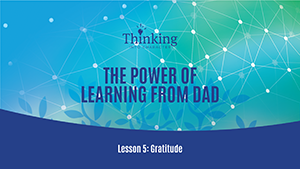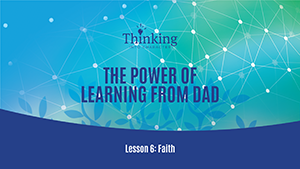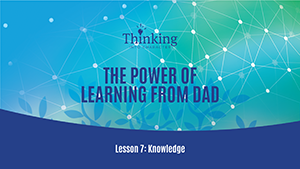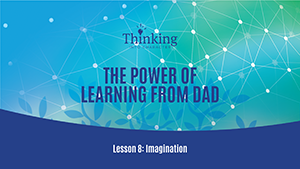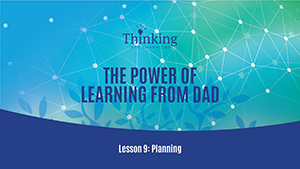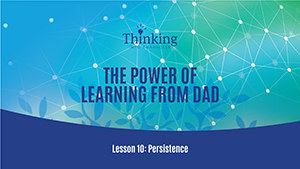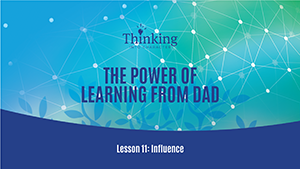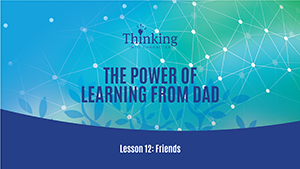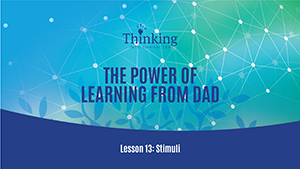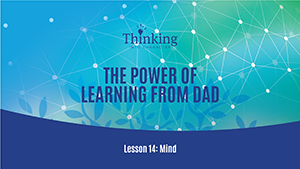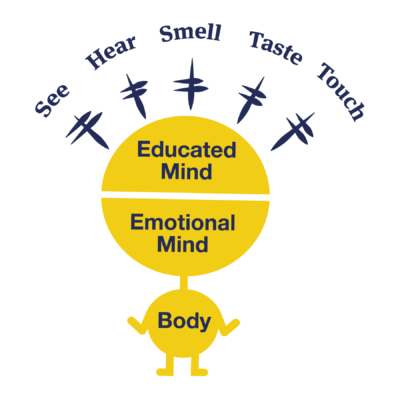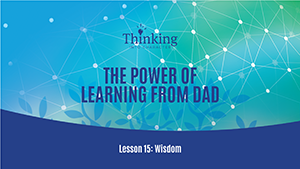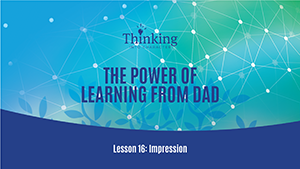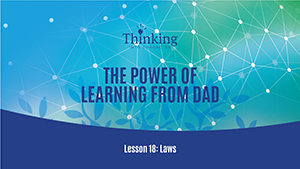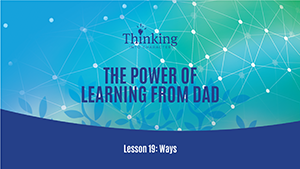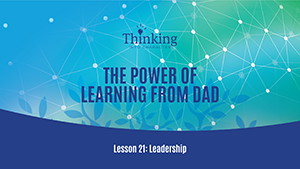Lesson 1: Desire
Lesson 1 – Desire – Part 1
“Your ambitions will be realised through imagination, careful planning and self-discipline”
What prospects would you imagine of a person who came to the UK as a refugee after fleeing persecution and war? How do individuals starting out from difficult backgrounds achieve success? In this video, Dr Selva Pankaj, proprietor of the multimillion-pound education and real estate company, Regent Group, introduces his life story, fleeing war in Sri Lanka and coming to the UK as a refugee with no money, a limited education and no connections. It was in the UK, that he began the journey to success by learning from the insights that were passed on to him from his father. Dr Selva Pankaj will begin to share these insights with you in this video.
The first key to success is DESIRE. Having a burning desire is critical to success, as are the following elements.
- Know exactly what you want
- Know what you are going to give in order to achieve what you want
- Establish a definite date by which you intend to achieve it
- create a definite plan for carrying out your desires, and begin to act now
- Get emotionally involved with your desire, so as to place the burning desire for its achievement into your subconscious mind
Lesson 1 – Desire – Part 2
“To maintain focus and commitment to your goal, and to follow through your plan until completion, you must do what you enjoy and follow your passion.”
In this video Dr Selva Pankaj goes through a range of examples that will inspire you to follow your passion. Examples include Elon Musk, John Milton and Thomas Alva Edison. Each of these entrepreneurs was catapulted to success through the execution of a passion driven project.
These pioneers of the past give us insight into how we can forge a positive future for ourselves now, and into the future. These pioneers also give us insight to the importance of having a burning desire. Having a deep and burning desire is exactly what we mean by having a PASSION. A deep and burning desire is absolutely critical to achieving the goal that you want. Passion might well save your business, your relationships or even your life. As it does, in one story recounted here.
Questions to consider from these videos:
- What are your current goals?
- Do you have your goals written down and do you review them daily?
- Do you have a burning desire, i.e., a passion, to achieve your goals?
Lesson 2: Attitude
Lesson 2 – Attitude – Part 1
“Our attitude toward life determines life’s attitude toward us.” – Earl Nightingale
In this lesson, Dr Selva Pankaj talks about the importance of attitude drawing on thinkers such as Earl Nightingale and Ralf Waldo Emerson.
Attitude is here defined as a collection of thoughts, feelings and actions that together determine our response to any given situation. Bob Proctor elaborates: Our attitude is the environment we carry with us during the day. It proclaims to the world what we think of ourselves and indicates the sort of person we have made up our minds to be.
Attitude is by far the primary determiner of your success. It is said, “Good attitude, good results. Poor attitude, poor results. Earn Nightingale famously wrote, “It is impossible to overestimate the number of opportunities missed because of poor attitude.” What opportunities can be gained then, simply by shifting our attitude?
This lesson will explore this question in particular by taking a deep dive into two more fundamental questions:
- What is your attitude?
- And how can you make modifications in your attitude to change your results?
Lesson 2 – Attitude – Part 2
“All that a man or woman achieves, or all the he fails to achieve, is a direct result of his or her attitudes.”- Earl Nightingale
A positive mental attitude is critical to success and it requires discipline. People sometimes misunderstand discipline. They take it to mean following commands or orders given by others. This is not at all the case. Discipline is not about someone telling you what to do, rather it is about giving yourself a command and following it.
As well as discipline, maintaining a good attitude requires the development of a growth mind-set. Research into the growth mindset derives from Prof. Carol Dweck and her team, who observed that people tend to have two distinct attitudes to abilities. On the one hand there is the view that abilities are incremental, on the other hand there is the view that abilities are fixed. Those with a growth mindset understand that abilities are incremental, which means that they understand that their abilities are correlated to the amount of effort and time that they put into developing them, much more so than it is with their “natural” dispositions or inclinations. The concept of the growth mindset has been adopted by high-net worth individuals such as Satya Nadella, CEO of Microsoft to achieve great success, and it is one Dr Selva has used successfully to scale his business.
Here, Dr Selva shares his own personal journey, on how he arrived at the concept of the growth-mindset, through his father and through his teacher and mentor, the late, professor Clay Christensen of Harvard Business School. Thus, it is the growth mindset and discipline as they relate to attitude, that have proved to Selva absolutely critical for success.
Here are three things you can do today to improve your attitude:
- Stay positive and look for the positive in others
- Shift gear if you spot that you are getting into a negative mindset
- Shift gear if you spot that you are getting into a negative mindset
Lesson 3: Decision
Lesson 3 – Decision – Part 1
In a recent survey of senior executives, the ability to make decisions was identified as the most sort after leadership skill. We are not surprised.
Decision making is more of an art than a science, nevertheless in this lesson you will encounter a range of tips that will greatly improve your decision-making capacities. Some of these tips include:
- Do not procrastinate. Procrastination is the enemy of decision. Successful people have a habit of making decisions promptly and changing them slowly. Unsuccessful, however, people have a habit of making decisions slowly, if at all, and changing them at the first sign of any challenge or obstacle.
- When decision on how to move forward, reflect on the result you are after rather than the problems or obstacles. Your deciding should be guided by the result you want to achieve, and not the problems you wish to avoid.
- Relatedly, if you are currently at a place that you would not like to be in, do not base your decisions on where you are now, but rather on where you want to be. If your decisions are based solely on where you are now, your decision is bound by your previous thinking, which may well have been ineffective. That thinking carries into your new decision if you use it as the springboard for further decision making.
- Choose your mentors wisely. Be careful about which ideas you listen to when in the deliberation phase inaccurate opinions from well-meaning friends, family or colleagues can easily cloud your decision-making faculties and derail you, steering you away from your purpose. This is not to say, do not seek council, it only means that you should be looking to identify facts from others, so that your decisions are well informed.
“Opinions are the cheapest commodities on earth. Everyone has a flock of opinions ready to be wished upon anyone who will accept them. If you are influenced by “opinions” when you reach DECISIONS, you will not succeed in any undertaking.” – Napoleon Hill
Lesson 3 – Decision – Part 2
Being decisive is something that we do quite naturally when very young. Sadly, this decision-making capacity is infrequently taught or developed in schools, which means that many people lose their decision-making capacities becoming more reticent as they get older.
In this video, we carry on looking at the key features of effective decision making which you can use to reignite or bolster your decision-making faculties. Some of the ideas introduced or reinforced include:
- Without a purpose it is difficult to make effective decisions. Decide first on your purpose or end goal and the decisions needed to arrive at your desired location will become clear.
- Decisiveness requires courage, be prepared to stand your ground, remembering that when you make a committed decision you cannot give up at the first sign of difficulty. Only by sticking with your decision will you experience the joy of accomplishment. The joy of accomplishment comes from achieving your end goal.
- There will always be tough times however the sky will always clear. The key is stickability. Remember that a major cause of failure is giving up before completion: a lack of stickability. As Ray Dalio says “push forward until completion”
- Use your intuition. Your intuition is one of the most important mental factors to use when making decisions. Our intuitions are frequently overlooked, but you must become attune to or develop your intuitive faculty in order to make the best decisions.
“Have the courage to follow your heart and intuition. They somehow already know what you truly want to become. Everything else is secondary.” – Steve Jobs
Lesson 4: Action
Lesson 4 – Action – Part 1
This part of the video covers the following topics
- Why should you take immediate action
- How to approach action in the world of work
- Why successful actions compound
Take immediate action
It is sometimes said that the best ideas are in the grave. What is meant by this is that we all have or have had brilliant ideas, they may be well thought through or come to you in flashes of inspiration. The critical thing to do when you have one such idea is to take action immediately. Your brilliant ideas will not create results by themselves.
“Only if you take action can the world respond with the results that you desire .”
It is your action that brings about the results that you desire, these are the result of your endeavours. This is a basic law of cause and effect. This law cannot be changed, and it is the same for everyone. Your success is invariably a result of certain successful actions, consistently taken. This is why it is important to take immediate action, and to stay in an action-orientated mode. When we take immediate action, we get the ball rolling towards the results we desire.
How to approach action in the world of work?
One feature discussed in this video is how to approach action in the context of work. Here, it is important to “fill your role” To explain this further, Dr. Selva introduces a metaphor of a cargo ship.
Imagine that you are on a cargo ship. The crew members on the ship fill their place, which means that they perform their roles efficiently and effectively. Those who do not fill their place, are like the cargo, and they will be the first to be thrown overboard when the ship hits rough seas. When a crew member becomes cargo, this means that they are being carried at great expense by their shipmates, so there is hardly any choice when times become difficult but to throw the cargo overboard. Absolutely no captain wants to throw his cargo overboard, cargo is very precious, however if it is a matter of the survival of the vessel, they scarcely have a choice.
The point here is that if in your daily actions within your organisation you are filling your role, you are a critical shipmate and are not likely to be cast overboard. When it comes to actions at work, the question to ask is am I an effective crew member, filling my role to the best of my ability?
Successful actions accumulate
A successful day depends on your successful actions, and a series of successful days leads to a successful week, a successful month, a successful year and ultimately, a successful life. These actions have a cumulative effect because they are producing successful results, and these successful results compound. The more successful days the more you tip the balance in your favour.
The opposite is also true. Too many unsuccessful days, leads to unproductive weeks, months or even years. Therefore, too many unsuccessful days tips the balance, this time, not in your favour. We must therefore be vigilant to identify and eliminate unsuccessful actions. If there are unsuccessful actions (i.e., ineffective or inefficient actions) that are leading you to unproductive and unsuccessful days, nip those behaviours in the bud quickly. Without corrective action, the danger is that these unsuccessful days can easily accumulate, and can ultimately tip the balance between successful weeks, months and years.
Lesson 4 – Action – Part 2
Every act is either a success or a failure.
A successful act is an effective or efficient action.
An unsuccessful act is an ineffective or inefficient action.
This means that the cause of failure is simply doing too many things that are either ineffective or inefficient.
Looking at things in this way, the way to increase your success is simply to increase the amount of effective actions that you undertake on a daily basis. If you complete efficient and effective actions daily, you are bound to ultimately be successful.
In fact, doing just one or two actions efficiently and effectively daily can be all that is required to lead to exponential success. After all, as we have seen, successful days lead to successful weeks which lead to successful years. Not only that, success builds momentum and compounds exponentially. The more efficient and effective actions you take daily, the more the results of those actions build to create greater and greater successes into the future.
But how do you take efficient and effective action? Here are some pointers discussed in full, in the video.
- You have the power to make your actions effective and inefficient, use it, take action now. If you have a great idea about a business or how to improve your efficiency at work, begin it immediately
- Spot which of your actions are inefficient or ineffective and stop doing these activities immediately. Notice also your effective and efficient actions and amplify these
- Concentrate and stay present in the moment: focus on the action that needs to be taken now. Do not think about the actions you took yesterday or the actions you will need to take tomorrow. Ask yourself, what do you need to do now? Focus on that completing that action both efficiently and effectively.
- Spend the majority of your time in an action-orientated mode. By spending most of your time acting you will get speedy results – action is the primary medium through which success is gained
- When taking action do not compete with others. Stay on the creative plain. Think of new ways you can act even more efficiently and effectively, not how you can beat a competitor.
“You must get rid of the thought of competition. You are to create, not to compete for what is already created.”
Lesson 5: Gratitude
Lesson 5 – Gratitude – Part 1
This lesson takes on a spiritual dimension as Dr Selva Pankaj talks about the attitude of gratitude. Gratitude as an attitude fosters a deep sense of wellbeing, connection to others and connection to nature.
By developing deep feelings of gratitude, you connect yourself to the better part of yourself, and this activates a spiritual dimension of the self. This is the part of the self that exercises both faith and compassion.
For example, you cannot be upset or frustrated at life if you have a deep sense of gratitude for what you currently have. This is not to say that you will not have the desire to achieve more. Indeed the desire to achieve more is also a part of nature as nature herself is always expanding. The point here is only that it is difficult to feel negatively about your current situation or to be jealous of what others have if you effectively cultivate the attitude of gratitude. Gratitude is an attitude that keeps you positive, keeps you in creative flow, and prevents you from falling into competitive thought processes.
Counterintuitively, the more grateful you are for what you have, the more you actually get. As Oprah puts it:
“Be thankful for what you have; you’ll end up having more. If you concentrate on what you don’t have, you will never, ever have enough.”
Gratitude brings you closer to what you desire by means of “a strange alchemy”. Both Bob Proctor and Wallace D Wattles talk about this as the law of gratitude, which is taken to be one of the natural laws. It is certainly ironic that by being genuinely grateful for what you have, you tend to attract more abundance, however the reason is more practical than magical.
The attitude of gratitude keeps us grounded and humble and in a state of humility we are more receptive to new ideas that will help us grow. Also, gratitude keeps your mind away from negative thinking. The minute your mind begins to focus on dissatisfaction, it is that emotion that is amplified, and that is the energy that is returned to you. When in contrast your mind is focused on gratitude, it is that positive emotion that is amplified, and that positive energy that is returned to you.
How do we maintain gratitude? Here are three practical steps:
- Write a gratitude journal
- Emotionalise the entries in your gratitude journal
- Find things to be thankful for every day
Lesson 5 – Gratitude – Part 2
Let us explore further the spiritual dimension of gratitude.
The grateful mind continuously expects good things. These expectations are a kind of unshakable faith. Therefore cultivating an attitude of gratitude is also a matter of creating and strengthening faith that the future will be full of positive outcomes. The more you practice gratitude, the greater this faith becomes.
The faith which is consequently cultivated by gratitude is essential for success. When you set goals, you must have faith that your ambitions can be realised. The belief in the viability or potential of a project is absolutely critical to its success. Also critical to success is the faith that you can, through your own actions, achieve the results that you desire. It is this faith, this expectation that good things will happen, that will enable you to persist through tough times. Thus, gratitude builds faith, and the strength of your faith supports (but does not fully determine) successful outcomes. In this way, gratitude is actually foundational to success.
Of course, we are not talking about religious faith here. Faith is defined here as a belief about a definite future outcome.
“Faith is the ability to see the invisible and believe in the incredible and that is what enables believers to receive what the masses think is impossible”.
Do cultivate the attitude of gratitude, and do be grateful, especially for the simple things – the fact that you have woken up in the morning, that it is a beautiful day, that you have food to eat and water to drink, the fact that you have friends or family that you love. All of these are things to be incredibly grateful for. In cultivating this attitude, you will reap enormous benefits including:
- More positive outlook
- Appreciation for the little things
- Greater feelings of compassion, faith and humility
- More resilience
- More likelihood of success in your chosen endeavours
Lesson 6: Faith
Lesson 6 – Faith – Part 1
In this video, we introduce the concept of faith. The faith that we are talking about here is not religious faith, but rather a firm conviction in a positive future outcome. We have said previously:
“Faith, is the ability to see the invisible and believe in the incredible and that is what enables believers to receive what the masses think is impossible” – Clarence Smithison
As well as introducing the concept of faith, and its relationship to love and affection, we look here at how faith may be induced or created by affirmation or repeated instructions.
Faith in a new idea can be developed if it is frequently repeated and emotionalised. In fact, the mind generally takes to be true any idea that is presented to it with enough frequency and emotional intensity. This is the principle of autosuggestion described by Napoleon Hill and you can see the same phenomena inappropriately used in propaganda. The mind is indeed a fertile ground, it bears fruit to the ideas and practices routinely placed there and sufficiently emotionalised, be they good or bad.
We can see the power of faith exemplified in two key events, which are discussed in the video. These are:
- the popular rise of Mahatma Gandhi
- the popular response to the great depression
Additionally, in this video predictions for the future of work and industry are discussed. Specifically, it is suggested that:
- There will be labour transformation due to increased mechanisation
- Leaders will need to be retrained to enable them to have even greater emotional intelligence .
- The principle of faith and being able to mobilise faith in others will become an increasingly useful skill
- There will be more faith and cooperation mobilised as a response to fear
Lesson 6 – Faith – Part 2
There is a deeper science of nature that is not taught in schools. This is the idea that nature is a mass of energy, made up of constructive and destructive vibrations. These vibrations act as responses to the positive or negative vibrations of individual thoughts. This is the premise behind the law of vibration and the law of attraction made recently popular through the work of Bob Proctor.
The attitude of faith is a vibration. It signals confidence about the future, an expectation that good times will materialise. By means of the law of attraction, nature responds to the attitude of faith by providing opportunities and experiences that reconfirm our original attitude. This is why, very generally, having a positive mental attitude is so critical for success.
As Walter D. Wintle points out in his famous poem summarised here: If you think you are beaten, you’ve lost the game. If you think your outclassed the same. For lives battles do not always go to the stronger or faster person, sooner or later the person who wins is the person who thinks they can.
How do we get to know and understand the effect of faith and the law of attraction more generally? Here it is crucial to study yourself, your attitudes and your results. Subsequent videos will elaborate on these points.
The final point to consider about the concept of faith as it is introduced here is the relationship between faith and wellbeing. The attitude of faith is expressed as wellbeing, a feeling of being confident and at ease. The opposite of faith is fear. Fear is expressed through the body as dis-ease, a feeling of anxiety and distress. Thus cultivating the attitude of faith is as important as cultivating the attitude of gratitude, previously discussed. These two positive attitudes have great effects. Both lead feelings of ease, contentment and wellbeing. It is in this space that we can be creative and produce our best work
“Faith and fear both demand you believe in something you cannot see. You choose!”
Lesson 7: Knowledge
Lesson 7 – Knowledge – Part 1
There are two kinds of knowledge: general knowledge and specialist knowledge. You may have noticed that individuals having an abundance of specialist knowledge (such as doctors and engineers) earn more than those who do not. This reflects an important principle for success. General knowledge, while very important, rarely helps you to achieve great success. To succeed in particular goals, such as growing a business in your industry, it is specialist knowledge that is required.
However, specialist knowledge is not useful in and of itself. For its true value to emerge, all knowledge must be organised and intelligently directed through practical plans. This indeed is why we say that knowledge is not power. Knowledge is potential power. Knowledge becomes power when it is organised and directed towards definite goals through planning.
While it is advisable to take steps to acquire the specialist knowledge that is required to achieve the goals you desire, you must also recognise the limits of your own knowledge. About your chosen industry or business, there is so much to learn, from policy to finance to customer service. This is where we bring in the power of the mastermind.
The power of the mastermind
A mastermind is a group of individuals that you have carefully selected to work with, they are your personal team who have a different range of expertise or a wide selection of specialised knowledge distinct from your own. This is your trusted council to which you can turn to complement the gaps in your knowledge.
Make sure your mastermind is a trusted group of individuals, with positive mental attitudes and a wide range of expertise, particularly in areas outside your special area of interest. By interacting with and brainstorming with your mastermind, not only will you learn a great deal, but you will be inspired by new ideas and new perspectives that enable you to innovate.
Indeed, the power of the mastermind shows that the knowledge utilised to achieve success does not necessarily need to be in the hands of the person utilising it to make plans – it could just as easily be derived from having the right people, and being able to lead them effectively.
Taking all of the above, into consideration, here are two questions that it is critical for you to answer:
- Do you have or are you developing specialised knowledge?
- Do you have a mastermind of experts around you?
To summarise: There are two key points to take away from this video. First, it is essential to become a lifelong learner. Learning does not end after graduation; we should always be seeking more specialised knowledge in our area of interest. Second, being a leader does not require that you are an expert in all areas relevant to your field of interest, as long as you are able to harness the skills and expertise of others, you can still succeed in your particular area of interest.
Lesson 7 – Knowledge – Part 2
In part 1, we saw that developing specialist knowledge in your area of interest and remaining a lifelong learner is essential to your success. However, too many people have the attitude that learning ends after formal schooling or that they do not have the time, and are too busy to continue studying.
Maybe you think it’s too late for you to start an entrepreneurial venture, maybe you feel that you are too busy at work, maybe you have young children or elderly parents that you look after. The truth is, it is never too late, and even with all the competing and legitimate demands on your time, a commitment to studying even 15mins a day will make a profound difference to your outcomes.
If we do not manage all of the competing demands on our time in order to pursue the specialist learning that is absolutely critical to long-term success, it will become very difficult to achieve our goals. As Napoleon Hill says:
“The person who stops studying merely because he has finished school is forever hopelessly doomed to mediocrity – Napoleon Hill
No matter what, try and commit to 15mins or more a day to work on your area of specialisation.
Where should your area of specialism lay?
In answering this question, it is important to follow your passion. Consider for example a business venture that excites you. Do you know all there is to know about the industry? Have you taken up specialist courses related to the business? Have you prepared yourself with the knowledge that you need to seize opportunities in this area?
As you gain more specialist knowledge, you will be coming up with a range of good and viable ideas, and the great thing is that, there is no fixed price for sound ideas. Thus, out of these ideas, may emerge a very profitable product or service.
As you are planning and are organising each of these ideas into practical knowledge, it is important to think of yourself, and hold yourself up to the same standards as a business. As a business you must develop new ideas for products and services, you must develop a strategic plan and clear business objectives, you must have a financial plan for the quarter and so on. What product can you create? What service can you offer? What is your strategic plan for you? And, what is your financial plan for you?
Imagine yourself as a business, so as to take charge and lead yourself as a business. Gain specialist knowledge to allow you to develop your product offer and service, learn about strategic planning and financial forecasting so you can maintain the financial health of your business. Develop your service offer, become a lifelong learner to enable you to innovate and seize opportunity and create your very own mastermind . With all of this in place, armed with your specialist knowledge you are bound to succeed.
Lesson 8: Imagination
Lesson 8 – Imagination – Part 1
The imagination has been called “the workshop of the mind” and this is in part because, the imagination is the mental “space” in which new ideas are created. Through the imagination you can devise new ideas and strategies that will help you to achieve your desired outcomes.
There are two types of imagination: synthetic imagination and creative imagination. Creative imagination is the activity of thinking entirely new ideas. Synthetic imagination is the activity of combining old ideas in new ways to create a new combination of ideas. Both faculties of imagination are important to success creation. When these imaginative faculties are made alert and receptive to desires they begin at once to work to think up ideas for the satisfaction of those desires. What this means that each of us essentially has a creative problem solving mechanism at our disposal.
There are two types of imagination: synthetic imagination and creative imagination. Creative imagination is the activity of thinking entirely new ideas. Synthetic imagination is the activity of combining old ideas in new ways to create a new combination of ideas. Both faculties of imagination are important to success creation. When these imaginative faculties are made alert and receptive to desires they begin at once to work to think up ideas for the satisfaction of those desires. What this means that each of us essentially has a creative problem solving mechanism at our disposal.
“The great leaders of business, industry, finance and the great artist, musicians, poets, and writers became great, because they developed the faculty of the creative imagination”
Everyone is naturally endowed with and can make use of both the creative and the synthetic imagination. That means everyone can be creative or imaginative. While it is true that the imaginative faculties can easily become dormant through lack of use it can just as easily be revived and made alert through use. The capacity of imagination is developed and strengthens through use. The more you use your imagination, the stronger it gets.
A final point to note: while we cannot underestimate the importance of the imagination – every new product or service starts off as an idea in the imagination of its producer – imagination must be coupled with action to create success. In other words, success involves the effective use of the imagination backed by action. Creating a picture in your mind alone will not get you the success you seek. Imagination is therefore creative tool that takes you to the door of action.
For more on taking effective action see Lesson 4 on Action.
Lesson 8 – Imagination – Part 2
In part 2 of our video on the imagination, we will look in closer detail at the remarkable properties of the imagination, beginning with ideas. Unlike a table or a chair, ideas are intangible forces. As intangible forces, ideas can be incredibly powerful. Some ideas, like those associated with popular social and political movements, are so powerful in fact, that they outweigh the brains that gave birth to them.
When you bring an idea to life, through action, what has literally happened is that a picture that you had in your mind has come into reality as a result of your imaginative activity. This notion of bringing something tangible from the intangible is one that has fascinated theologians for centuries as it is speculated that the same mechanism was used by God to have created the tangible universe from intangible spirit. While the object of this lesson is not to discuss theology, it is worth drawing to your attention the idea of this quasi-divine capacity that you have to create the tangible from the intangible, through the actions you take to bring ideas to life.
Genevieve wrote:
“Everything in the whole world, from the hat on your head to the boots on your feet, has its beginning in mind and comes into existence in exactly the same manner. All are projected thoughts, solidified.”
Exploring Genevieve’s idea here brings with it some useful insights, which are discussed throughout the video. One key insight is this: it is absolutely essential that as you use the faculty of imagination, especially of creative imagination, to produce ideas that will help you to advance towards your goals, it is important that you form a clear mental picture of the idea, with as much detail as is possible. Why is that? If it is the thoughts that you have that are being solidified through the process of action, holding a very clear picture in mind will assist you to get the results that you desire, quicker. An unclear image will lead to haphazard results.
As an analogy, if you want to build a house but do not have a detailed plan, the building will not end up in a good shape. Similarly, having a clear idea of exactly what you want, and having a mental picture of it, is critical to taking the most effective actions to bring about that result. To begin to use the powerhouse of imagination to achieve results therefore requires you to have a clear mental picture of what you wish to achieve.
Of course, we must remember that in this process of creating clear mental pictures either of a desired result or of a potential new product or service, we must continue to understand and place value on the importance of action. Your imagination will give you answers, but it must be linked with actions for results to emerge.
In summary: imagination creates a picture, we take action every day, and this is the process of making the intangible tangible. By building our ideas and transforming them into reality through a series of actions, we arrive at the successful realization of our desired goals. In this activity, remember to be patient, don’t let the distractions of daily life put you off course. Continue with the actions required to bring imagination to life.
Lesson 9: Planning
Lesson 9 – Planning – Part 1
To achieve success, you will need to create practical and workable plans. If the first plan that you adopt does not bring about the results you desire, replace it with a new practical and workable plan. If the second plan also meets with failure, that too must be replaced, and on goes the process of replacing plans until you hit upon a practical and workable plan that succeeds.
Here is the point at which most people meet with failure, claimed Napoleon Hill, they lack persistence in creating a new plan to take the place of those that fail; taking failure either to be evidence of their own lack of capacity to achieve the goal set or to be evidence that the goal set is, in fact, impossible to achieve. Neither is true. When your plans fail, this is only confirmation that the plan did not work, NOT that the goal was not attainable or that you do not have capacity to attain it.
If your plans fail, embrace the failure for what it is, a temporary setback, exercise the faculty of imagination to build new plans and start out again. In truth we should expect some temporary defeat, at least at the outset because temporary defeat is an essential feature of all success narratives. This is true if we are to study the lives of any successful individual whatsoever. We have a tendency, when we see successful people, to only see the success, disregarding all of the temporary defeats that they encountered. However, every person who has ever achieved any great success will have stories of temporary defeat, and an explanation of how they overcame this to arrive at new plans that eventually led to success. The key is to just keep going.
“Defeat is temporary. It simply a sign that your plans are not sound, and that it is time for you to try another plan”
There is another often overlooked feature of planning, and that is this: to effectively take the actions required by your plan, you will require excellent leadership skills. Here we are not talking about the ability to lead others, but the ability to lead yourself. Self-leadership is the discipline of self-control, it means giving yourself a command and following it. There are many principles of effective personal leadership, including operating with sympathy, doing more than you are paid for and making a committed decision. We will delve further into the leadership qualities that are essential to planning in the next video.
Lesson 9 – Planning – Part 2
There are several qualities that you will need in order to be able to execute your plan, including:
- Having a great eye for detail,
- Knowing what is core and what is incidental,
- Taking full responsibility for your results and,
- Having well developed leadership skills
The last quality – having well developed leadership skills – we have introduced in our previous video. There we said that self-leadership is essential to planning, and in this lesson, we will develop that idea further.
As far back as 1937 Napoleon Hill wrote that we are entering a new era in which the relationship between leader and follower is more like a partnership. This could not be truer. Leaders of our new era must operate by consent, and not by force, and they must have a range of qualities that characterize effective self-leadership.
Some of the leadership attributes we should pay close attention to cultivating now are described below. Each of these qualities will help you as a leader to execute the organised plans that you have devised to achieve your goals.
- Leaders must render humble service: Leaders should not feel above any role within the organization and should not be willing to ask individuals to do work that they themselves would not do.
- Operate without ego: As soon as arrogance or self-importance kicks in the partnership between leader and follower is scuppered as the leader has collapsed into ego. Effective leadership requires that we must act without ego.
- Equitable division of praise and profit: A leader that claims all the honor for the work of his followers and behaves selfishly is not a leader at all.
- Ability to apply knowledge: Leaders understand that men and women are paid not for what they know, but for what they can do with what they know. As it is the application of knowledge that holds most value, leaders should therefore expect compensation on the basis of what they are able to do with their knowledge.
- Taking advice from others: In order to execute plans you need the tools of application, including access to a mastermind group. You must be able to take advice from others so as to discover new insights and new ways of doing things.
- Not be limited by circumstance: Leaders do not let situations define them, as it is they who define situations. For example, a leader with a difficult background will not let that stop them from achieving. While the difficult background may have an impact, it certainly will not hinder them.
- Have a purpose: If you do not have a well-defined purpose, it is exceedingly difficult to execute plans as a leader.
- Emotional self-regulation: The ability to manage self or emotion are also important as these will allow you to be steady and focused in the face of change and in times of crisis.
- Manage associations: Wrongful associates in business or in private can also scupper things. Remembering to choose your associates wisely, the people leaders surround themselves with should be people they attract through their positive attitudes.
To summarise our planning lesson: once you set a goal organised plans are required, and action should be taken. If your plans do not bring about the desired result, it is important to replace the plan, and not the goal. This persistence is paramount. Over time what you learn through the execution of previous plans will enable you to devise smarter and better plans, which have a higher chance of success. Alongside this, one of the key features that will impact on your ability to effectively deliver plans is your ability to lead yourself. Take time to look at and apply the self-leadership skills identified above, they will support you to successfully execute your plans.
Lesson 10: Persistence
Lesson 10 – Persistence – Part 1
Persistence is required to turn desires into results. This is because, as we have seen in Lesson 9 on Planning, most people are willing to give up their aim or purpose at the first sign of temporary defeat. It is only those few who carry on despite all opposition, those who persist, who will achieve their goals. In this lesson we take a deep dive into persistence, covering first, what persistence is and second, how persistence can be developed.
How can you persist in the face of temporary defeat? There is a cluster of attitudes and perspective that help to build persistence. For example, starting out with a strong desire is important, as the starting point of all achievement is a burning desire. As weak desire brings weak results, the attitude of persistence is strengthened by strong desire. If you find yourself lacking in persistence, try focusing on your desires and your purpose to reignite your passion. Passion will support you to push through temporary defeats. In finding your passions you find persistence.
An understanding of how success works also supports us to persist in the face of temporary defeat. So how does success work? It is important to realise that success is not something that you are born into, success is something that you attract through your attitudes and behaviours. This is true irrespective of your starting point. Whatsoever our starting point, we each have more than enough through the mental faculties with which we are all naturally endowed to capitalise on opportunities to attract success through our efforts. No circumstance precludes the ability to succeed, as no circumstance is a match for the minds for which we are naturally endowed. Success is a result of you, what you do, and sits quite independently of the circumstances you were born into or the environment that you are in now. With this knowledge comes the awareness that failure in or obstruction to your organised plans really is just temporary defeat; by continuing to try new things and developing the right attitudes, success will be attracted to you. That is simply how success works. In the face of temporary defeat, remember that wherever you are now, through your efforts in action and in attitude, you can change your circumstances and arrive at your goals.
It should be emphasized that the key to attracting success is found in your thinking processes, as many have said: you become what you think about. The choice we make of the thoughts we entertain can greatly impact whether success is maintained or lost. To support persistence, it is important therefore to be mindful of our thoughts, and more will be said about this activity of internalising and emotionalising thoughts conducive to success in subsequent lessons. Here, the point is only that a full understanding of success enables us to persist through defeat.
To sum up the insights from this lesson: with persistence no matter how slowly, you know that success will come. By understanding the nature of success, you know that you are responsible, and you are taking certain steps, every day and etching closer towards your goal. As you progress you will hit many roadblocks but through passion and awareness of the principles of success creation, you will persist through those temporary defeats, turning obstacles into opportunities.
Lesson 10 – Persistence – Part 2
People who persist, who do not accept temporary defeat as a final destination, are the ones that succeed. The key to persistence is to never give up in the face of discouragement, understanding as Churchill said: “failure is not fatal: it is the courage to continue that counts.”
Persistence is a state of mind and like all other states of mind; it can be strengthened through use. The more we keep going after temporary defeat, the more we build this muscle of persistence. Musicians are a prime example of persistence in practice. For a long period of time musicians must push through ostensibly poor performance as they exponentially grow in their knowledge of their chosen instrument. To put it more bluntly, initially most musicians sound bad but they must continue in order to ever sound good. No single musician has become successful without persistence. Indeed, those musicians that are now successful are not necessarily the best musically, they are simply the ones who did not give up in the face of temporary defeat and therefore built a solid foundation through which failures can be processed and learnt from.
In the previous video, we covered some of the ways in which persistence can be built. Persistence we said can be strengthened through desire. We can develop the idea further here. Persistence is strengthened by a definiteness of purpose. In knowing what you want and having a strong desire for its achievement you create a strong motivating force to pull you through difficulty and temporary defeat, onwards towards your goal.
What are some of the other causes of persistence?
- Self-reliance & self-belief: believing in your ability to execute a plan, which will lead to the desired result.
- Combining knowledge & experience: Knowing that you have a sound plan based on knowledge and experience not guesswork
- Will power: Developing your will power, which can be done through meditation and other strategies which we will discuss in subsequent videos.
Persistence is a direct result of habits. This means that through repeated efforts – continuing to pursue your goal in the face of temporary defeat – you will build the habit of persistence. This practice, once it takes root as a habit solidifies to become a feature of your character. You become a person who is resilient and tenacious as a result.
The video ends with an examination of the symptoms of a lack of persistence, which we must all be aware of and mindful to avoid. These symptoms are:
- Procrastination
- Failure to take responsibility
- Failure to seek feedback
- Fear of criticism of others for temporary failures
Lesson 11: Influence
Lesson 11 – Influence – Part 1
Often when we talk about influence, we are thinking intrapersonal: that is, we are thinking about how we can influence others. In this lesson, when we talk about influence we are thinking interpersonally: that is, we are thinking about how we can influence ourselves. Self-influence is by far the most powerful tool in your arsenal to achieve success. This is because success requires that you take control of your thinking, to develop a great attitude, and success requires that you take control of your behaviour, so that you complete activities that are initially difficult, such as going for the Sunday morning jog after a busy week. The ability to influence yourself will determine whether you have the discipline and motivation to adopt the behaviors and attitudes necessary to achieve your goal.
Before looking in some detail at how to go about influencing the self, we need to get a little clearer on what is meant by influencing the self. To influence the self means to impress an idea upon oneself in such a way that this new idea is adopted in feeling or in practice. That idea could be about the sort of attitude you wish to have or the sorts of behavior that you wish to adopt. You will have successfully influenced the self if you have coopted yourself into adopting the attitude or the behavior that you were seeking to implement.
The question then becomes, how do you impress an idea upon the self that sticks? How do you influence the self? To answer this question, we must first understand that the mind can be split into two parts. We have the conscious mind and we have the subconscious mind. Influencing oneself is about getting an idea to take root in the subconscious mind. We do this simply by becoming intentional about the kinds of thoughts we wish to be situated there. Having selected the thoughts we wish to take root, we work to associate these ideas with strong emotions. For example, it is not just the thought that “exercise is a form of self-care and I care about myself” repeated routinely as a mantra that will encourage the idea of exercise on a cold and raining Saturday morning to take root. This thought must be mixed with strong emotions, and it is the strength and power of this emotion that will encourage the idea to take root in the subconscious mind.
Influencing the subconscious mind however, is not only about what we put into the subconscious mind, it is also about what we intentionally keep out. Guarding against any thinking that contravenes the thoughts we wish to have present in the subconscious mind is critical. The subconscious mind is like a garden. We may voluntarily feed the subconscious minds on thoughts of a positive and creative nature, enabling these ideas to bloom or else, we can through neglect or by design, feed the subconscious thoughts of a negative or disruptive nature, leading to a garden populated by weeds: ineffectual thoughts and habits that are unable to support us to achieve our goals.
“We have complete control over the material that reaches our subconscious mind – it is our choice to exercise that control as a gardener exercise control over which crops to propagate”
The method outlined here, to influence oneself by means of influencing the subconscious mind is impartial, it works for everyone. The method plays no favorites. It will work for one person as effectively as it will work for another. The method requires only that you are persistent in your efforts to attach emotions to the attitude and behaviour that you most desire to take root. Once you have attuned your subconscious mind to the attitudes and behaviour you want, it will begin to go to work for you. You will find that ideas or plans will flash into your mind, for the completion of your chosen goal. When this begins to happen act quickly on these insights with the resolve that the object of your desire shall be yours.
Lesson 11 – Influence – Part 2
Towards the end of the last video, we began to talk about intuition. More specifically, we said that when you intentionally embed attitudes and behaviour into your subconscious mind that align with the achievement of your goals, you will get ideas or plans flash into your mind for the completion of those goals. That is to say, you will activate the faculty of intuition and that faculty will begin to work for you.
To say that we should use intuition to create a plan for the achievement of our goals, and to say that the process of influencing yourself is more fundamental than the process of influencing others, may seem unusual. Here we are sharing a variety of ideas and tools that have helped many to achieve success, we request that you simply keep an open mind. Do not take anything we say at face value. Keep on adding to your pool of knowledge and experience on the topic of success creation and human potential: be forever a student. After all, it is said that the learners will conquer the world, and the learned will be left behind. As you read and research more, you will find that many of the ideas presented here exist in different iterations elsewhere, and this accumulation of ideas may prove useful.
In general, most adults are skeptical of new ideas and even more so of new opportunities. The latter – skepticism of opportunities – is worth discussing in greater detail. If you are offered a lucrative business deal, you may well be skeptical of the motives of the seller, and walk away from the deal on that basis. What is going on here? You are being presented with an opportunity that you choose not to act on. This is an odd state of affairs. Opportunity, like success, is something that is attracted to you because of your attitude and behaviour. This business deal, therefore, has come to you because you have attracted it through your attitudes and behaviors. As it is you who have attracted the opportunity, the only question to consider in the negotiation phase is whether the offer being made is one that you would, on reflection, like to pursue or not. The motivation of the seller is entirely irrelevant. While an examination of the deal before you is certainly required, skepticism about the opportunity itself can be a form of self-sabotage.
This point can apply to all opportunities. It could be a business, the purchase of a house, or even a relationship. As it is you who attracted it, the significant question is whether or not you want to take on board the opportunity being offered. Here asking someone else whether you should proceed or not, can be a source of confusion. It is you, and not others, who are attracting the new thing. It is therefore for you, and not for others to decide whether this is something that you want or not. It makes little sense to be seeking answers externally. The question is rather to ask yourself, do you want the thing or not, does it align with your long-term goals, your values and your purpose? If it does, simply go for it! Remember that opportunities are coming to you precisely because you are attracting them, so it is for you and for you alone to decide whether those opportunities fit or not.
It may seem paradoxical that we might seek advice and clarity from others about what our dreams and desires are, however this is exactly what we do, and it is exactly what our education system has trained us to do: to take the ideas from the outside and bring them into the inside, the internal mental space. This style of outside-in learning is simply being extrapolated and transposed to areas in life where the model does not fit. Acting on opportunities often comes down simply to what it is you want, and seeking clarity from another about what you want to do exports our responsibility for decision making to others. Evaluating opportunities for success is very much, however, an internal matter. When we are looking to what is within ourselves and we have faith that what is attracted is a result of our own internal efforts, we are able to act on more opportunities and to take full ownership of our decisions. When we do this, we can truly say, “I am the master of my own destiny”
In sum: When we are talking about influence, we are not talking about using words or gestures to influence others, which often bleeds into a form of manipulation. The most powerful form of influencing is influencing oneself. It is important to understand that the whole concept of influencing is an internal mechanism. It is about shifting our own behaviour and mindset so as to attract the things that we want more of in life. When, by means of this mechanism we attract opportunities into our lives, it is important to remember to take decisions on pursuing those opportunities based on our own wants and desires. To seek advice from others on whether or not to pursue these opportunities is a little like asking others what it is that we really want, which is strange, to say the least.
Lesson 12: Friends
Lesson 12 – Friends – Part 1
When we are talking about friends here, we are talking about a relationship that can exist between individuals, organisations, communities or countries. Friendships are critical to success creation because success is often collaborative. In other words, wherever productive relationships exist, success can be created.
If the right friendship groups can create success, then the wrong ones can scupper or undo success. When we are thinking of friendship therefore in the context of success creation, there are three things to bear in mind:
- Make a conscious choice about who will be your friends
- Choose friends that you can learn from
- Choose friends who will support and challenge you in times of need and in times of plenty
When friends, be they individuals or organisations are chosen wisely, they can be a source of great personal power. Your friendship group becomes a source of power when they are able to expand and help you to intelligently direct your knowledge, knowledge that can then be organised in efforts to achieve your goals.
In summary: Choose friends that can expand your knowledge, challenge your assumptions and support you to achieve your goals. This strong network of positive influence will enable you to increase your success rate exponentially.
Lesson 12 – Friends – Part 2
In the previous video we talked about gaining power through our friendship groups. Here we elaborate of this point. Specifically, we said that our friendship groups, when intelligently and intentionally chosen, are a source of personal power. Napoleon Hill described this point eloquently.
In Think and Grow Rich, Napoleon Hill wrote that success is easily created through “the coordination of knowledge and effort in the spirit of harmony between two or more people in the attainment of a definite purpose” What is meant here is that when you work with friends who are able to expand your knowledge, in a spirit of harmony, you have available to you more skills, more ideas, more expertise and more experience through which you can actively achieve you goal. If this collective group is called upon to apply their expertise to the achievement of your goals, your chances of success compound.
Expanding on the power of your friendship group, Hill introduced the concept of a mastermind. He wrote: “No two minds ever come together without, thereby, creating a third, invisible, intangible force which may be likened to a third mind.” The concept of a mastermind gives us the real reason why friendship groups are a source of great power. When two people come together, the synthesis of ideas creates more than the sum of its parts. How does this work?
There is energy involved in thinking. Our brain may be compared to an electronic battery. It is a well-known fact that a group of batteries will produce disproportionally more energy than a single battery; similarly a group of minds creates disproportionately more thought energy than an individual brain. Through this metaphor it becomes immediately apparent that friendship groups are powerful. In utilising friendship groups we generate more thought energy working on our goal, which exponentially increases our chances of success. We can think of this as being like the difference in power generated by one battery as opposed to that generated by multiple batteries.
In summary: it is important to consciously and intentionally choose the right friendship groups. When you have people around you who are equally passionate about what you want to achieve, and who can add to your store of knowledge, they will stimulate your ideas. These individuals will not give you the answers, however through their input you can formulate new ideas and take new actions. A final point to make: while we have focused on goal attainment and personal power, economics without a balanced life has no value. We must therefore acknowledge in closing the huge role that friendship plays as a source of joy, enabling us to play, to learn and to grow.
Lesson 13: Stimuli
Lesson 13 – Stimuli – Part 1
Stimuli can be understood as any overwhelming desires or emotion that motivates action. Not all stimuli is bad, for example an overwhelming feeling of compassion may cause you to donate money to charity. However there are stimuli such as fear, anger or temptations, which can have unproductive physical expressions. It is these latter forms of stimuli that will be our focus here.
Stimuli that have unproductive physical expressions can be transmuted into more productive means. Transmutation simply means the transfer or change of energy from one form to another. Through an effort of will, we are able to transmute the energy stored in, for example anger, into a more creative physical outlet. Why might you wish to transmute stimuli?
There is a creative force or even genius contained in strong emotions, however our default is generally to allow these emotions to have unproductive physical expressions. In anger, one lashes out, for example. Learning the skill of redirecting the high energy contained in these stimuli into creative and productive means taps into your creative imagination and can increase your chances of success, simply because you now have at your disposal a stronger and more intense energy being directed towards the achievement of your goals.
The creative potential energy contained in stimuli stems from the strong desires that are seeking physical expression, so the key to transmutation is utilising this strong desire towards other ends. Writing about these phenomena, Napoleon Hill writes:
“When harnessed, and redirected along other lines, this motivating force maintains all of its attributes of keenness of imagination, courage, etc., which may be used as powerful creative forces in literature, art, or in any other profession or calling.”
How then do we transmute stimuli?
In order to transmute stimuli, we need to utilise the power of the will to give stimuli forms of expression that enrich the mind, body and spirit. For example, recognising that anger is an overwhelming emotion, when angry in place of the angry outburst, we may wish to express our anger through painting or in the arts. Making the decision to express anger in this way takes a great deal of will power, however this effort in self-control pays dividends. That is because we achieve so much more creativity and innovation when we are able to understand and redirect stimuli.
When we activate our strong desires or strong emotions and direct these forces towards creative or problem solving outlets, we connect to the faculty of the creative imagination. It is the connection between the creative imagination and transmutation that makes transmutation such a powerful tool in the arsenal of success creation.
The faculty of creative imagination is also known as the sixth sense and through its activation we awake a genius that lays in each of us. When an idea flashes through the mind through a hunch or a light bulb moment that is the creative intelligence at work. True genius, is developed through the sixth sense, which is purposely activated when we redirect strong desires to creative ends. In summary, when you actively use the creative imagination with purpose, you are able to achieve genius results: new ideas, new ways of solving problems and new forms of self-expression. Imagine how much easier you can achieve success when we tap into our inner genius.
Lesson 13 – Stimuli – Part 2
Our five senses bombard us daily with information which often act as distractions and prevent us from tapping into, and getting in tune with our sixth sense. To tap into the faculty of the sixth sense, we must move beyond our basic five senses, into a world of thought. More exactly, we must become attune to an inner voice, which will initially provide us with hunches and aha! moments.
It is, the frequency and clarity of these hunches or aha! moments, that distinguishes the genius from other individuals. While we may look on, thinking that the genius has a special intellectual endowment, the truth is that we all have an inner genius, and our access to the source of information provided by this faculty can be developed through inside out education.
The more we use our sixth sense, the greater it becomes, enabling us to detect possibilities and opportunities that seem to “come from nowhere”. The great successes in education and business swear by this faculty, sometimes called intuition, as a primordial creative force, guiding their way through innovative ideas and solutions . For example, Steven Jobs wrote:
“Have the courage to follow your heart and intuition. They somehow know what you truly want to become. Everything else is secondary”
Napoleon Hill adds: “the great artist, writers and musicians become great because they have acquired a habit of relying on the voice that speaks from within”
Albert Einstein concurs: “The intuitive mind is a sacred gift and the rational mind is a faithful servant. We have created a society that honours the servant and has forgotten the gift.”
What has this to do with transmutation of stimuli? Here is the connection: When we are in a state of high desire or high emotion, we temporarily increase the vibration of thought. It is this high frequency movement or agitation of thought that allows us to tune into our sixth sense, as it is a faculty that works for us at higher states of vibration. We should therefore welcome the presence of strong desires as the dominating thoughts in our minds, so long as we are able to transmute them to creative ends. Through transmutation of these strong desires and emotions to creative ends, we activate the sixth sense and can switch on our inner genius.
Let us end this section with an observation. We all have an inner voice that speaks to us. We all have a tendency of dismissing this voice as unrealistic or illogical. If you have a hunch or a flash of inspiration, that will be the faculty of the creative imagination offering up information for you to act upon or to dismiss. Learning to trust yourself, to trust your inner voice, and to act on these prompts can lead to the kind of innovations that generate incalculable success.
Note on this section: the sixth sense is a phenomenon that has been discussed by various thinkers. It is variously called, intuition, the faculty of creative imagination or the inner voice.
Lesson 14: Mind
Lesson 14 – Mind – Part 1
In a diagram of the mind drawn by Dr. Thruman Fleet, the mind is divided into two parts. There is the conscious mind and the subconscious mind. These two parts of the mind are then connected to the body. In these lessons we explore this image of the mind, paying close attention to the character, function and operation of the subconscious mind.
The subconscious mind is a collection of thoughts and habits that have become automated through a process of repetition or emotional engagement. For example, I will routinely eat an apple without having to think to open my mouth, to place the edible object in my mouth, to bite and so on. I do not have to think about the process of eating the apple, as the process is stored in my subconscious mind. It is a form of automated or habitual behaviour. Similarly, having had a traumatic experience with a house spider in my formative years, I no longer think before running for dear life when I see a spider. Here it is the emotional impact of the event early on that has been stored in the subconscious mind. Once again, this means that when I see a spider I act, immediately and without thinking.
In both of the examples above, I do not need to think about the response before I behave, I just do it. Notice that all of this “programmed” or habitual behaviour is based on prior conscious experiences that have been encoded into the subconscious mind, either owing to their frequency (I must have eaten 1000 apples, so I know how to respond) or through their emotional impact (a traumatic event). Thus the subconscious mind is the storehouse of those conscious experiences that have been sufficiently repeated or sufficiently emotionalised. To understand why these two points are important, we need to take a few steps back. What does it take to be successful?
In order to achieve success, we must do certain things consistently. You cannot achieve any success if you simply sit at home thinking about how much you want to be successful, you must go out and do something. It is estimated that as much as 98% of our actions are habitual. This means that in order to achieve success, we must transform our habits; habitual behaviors are the source of the bulk of our actions. We should now begin to see why our subconscious mind is enormously important. It is in the subconscious mind that our habits are formed as unconscious scripts or programmes. More explicitly, the subconscious mind is a powerful tool for success creation because it is the home of habit.
The question therefore becomes, how do we take charge of our subconscious mind? The answer is that we must replicate the activities that got thoughts and habits embedded there in the first place. We change our subconscious mind by
- Constant paced repetition (i.e., repeated exposure over a period of time to the new idea or habits we are trying to embed)
- Emotional impact (i.e., a severe emotional response associated with the new idea or habit that we are trying to embed)
To sum up, in order to influence the subconscious mind we must take full control of our thoughts and it is only if we have control over the subconscious mind, that we can take control of our actions via our habits. It is in the power to take charge of conscious thought, via the two methods above described, that we can take charge of our ability to create whatever result that we wish to achieve. We must therefore insure that our thinking is always congruent with those things that we wish to create, and we must remember that it is only by means of our thinking that we can direct the behaviours required to achieve the results we desire.
“Humans create nothing that they do not first conceive of in thought; if you can have it in your mind, you can hold it in your hands”
Lesson 14 – Mind – Part 2
The tools that we use to influence the subconscious mind are repetition and emotionalisation of the specific set of thoughts that are congruent with the goals that you have set yourself. Any idea frequently repeated and mixed with emotions of desire or faith will take root in the subconscious mind. This is why you may have noticed that thoughts that are backed by strong desires or faith are more readily acted upon.
It is here worth saying a few words about positive and negative emotions. While negative emotions may be strong we must be careful to guard against negative emotions and negative ideas, by consciously committing oneself to positive emotions. Negative emotions such as fear, doubt and worry can undo a lot of the work that you are currently embarked on to shift your mindset at a subconscious level. In fact, the presence of a single negative emotion may be sufficient to destroy all of the positive ones. It is like adding poison to an otherwise nourishing glass of water. To explain this further, let us take the example of fear.
Negative emotions like fear, is simply a script or a programme in the subconscious mind. Circumventing fear, and its associated thoughts, is absolutely critical to your success. We overcome the fear script in the same way as we might overcome any script within the subconscious mind that is either obstructing or simply not congruent with our set goals. To overcome fear, we simply need to install the script of the brave. We do that by, repeatedly reframing the fear, implanting the new idea of brave conduct, and emotionalizing that new idea. Practically, this might mean when we are conscious of situations in which we are afraid, we reframe the fear as an opportunity to be brave, and having worked on establishing positive associations with bravery, we have faith that we really can be brave, and are motivated to act differently over time.
Your mind is under your control, and you do have a choice whether to put in positives or negatives. If you invite positive emotions, such as strong desire, faith, excitement and gratitude, they will multiply themselves and more positive emotions will be at your command. What is actually happening in mastering these emotions is you are creating a positive frame of reference with which to view your experience. If we allow negative emotions to flourish, a new negative framework emerges. Every challenge will become too hard, opportunities, should you spot them at all, will be too far out of reach. With a negative attitude embedded in the subconscious mind, you scupper your chances of success.
The final point to note in this lesson relates us back to our previous lesson, on wisdom. When we take charge of the subconscious mind, and root out negative ideas and influences such as limiting beliefs, we immediately experience more flashes of insight, more aha! moments, and more intuitive pulls towards this or that person or activity. In other words, we activate the sixth sense, which we have previously discussed as being integral to success creation. Through these intuitions, these internal hints and direction, it is almost as if the universe itself is lending itself to support the advancement of our desires. Thus, by taking charge of the subconscious mind, we are tapping into that power within us that allows us more readily to translate our desires – or thought impulses – into reality and we are connecting with a higher power. This is the power that separates us from animals: the power to create. Hence Napoleon Hill wrote:
Through a method of procedure, unknown to man, the subconscious mind draws upon the forces of Infinite Intelligence for the power with which it voluntarily transmutes one’s desires into their physical equivalent, making use, always of the most practical media by which this end may be accomplished.
Lesson 15: Wisdom
Lesson 15 – Wisdom – Part 1
In this lesson on wisdom, we will take a deep dive into the concept of the sixth sense. We have introduced the concept of the sixth-sense as the faculty of creative imagination activated by the specific use of the subconscious mind. The concepts and ideas discussed in this lesson are esoteric and at times controversial, however they represent our clear experience and investigations into this area. In our reasoning here we stand together with Wallace D Wattles, the thinker on the basis of whom the movie The Secret was written. We ask only that you consider these concepts, ask questions and complete your own research; this is essentially a journey of self-discovery.
The sixth sense is the portion of the subconscious mind that has been referred to previously as the creative imagination, intuition or our inner voice. We have said that it is through the sixth sense that we receive hunches; we receive innovative ideas or solutions that just “pop to mind” in a manner that occasionally surprises us and more often than not surprises the market. Thus, when investigating the sixth sense, the question that inevitably arises is: what or who is responsible for the messaging we receive by means of this sixth sense. It is our view that these messages come from two sources: our accurate detection of the vibrations of thoughts in the minds of others and/or from the vibrations of thought from nature itself, an infinite thinking intelligence, which permeates the whole of the universe.
One way to think about this is through the idea of a radio broadcasting system: through the medium of nature, in a fashion similar to that of a radio broadcast, every human brain is capable of a) broadcasting ideas through the vibrations that they send out through emotionalised thought and b) picking up vibrations given off by the thoughts being release by other brains and the vibrations given off my nature itself – the ultimate intangible. Let us start with the idea of receiving vibrations we will then move on to the idea of transmitting vibrations.
Receiving vibrations: When we get a hunch about something or someone, we are often actually picking up the vibrations of the thoughts from their mind by means of the faculty of the creative imagination. Our brains are also capable of picking up the vibrations given off by the universe itself – the ultimate intangible, when we ourselves are in heightened states of vibration. That is to say, when our own thinking is clear and elevated by strong positive emotions such as faith, or when we are transmuting strong desires into creative forms of expression, we become receptive to the thoughts of nature and these thoughts of nature communicate information to us.
Receiving vibrations: When we get a hunch about something or someone, we are often actually picking up the vibrations of the thoughts from their mind by means of the faculty of the creative imagination. Our brains are also capable of picking up the vibrations given off by the universe itself – the ultimate intangible, when we ourselves are in heightened states of vibration. That is to say, when our own thinking is clear and elevated by strong positive emotions such as faith, or when we are transmuting strong desires into creative forms of expression, we become receptive to the thoughts of nature and these thoughts of nature communicate information to us.
In summary: Through the process of internalising certain thoughts and habits, and emotionalising these, the subconscious mind is able to impress its own ideas on the minds of others and on infinite intelligence, and through the capacity of the sixth sense it is able to receive information from other conscious minds and from nature which it can use to act. Those who achieve astronomical success are fully aware of the power of the subconscious mind, and they utilise its capacity as both a sending and receiving centre of the brain. However the critical point to note is that every single person on the planet, in so far as they are conscious, can activate this powerful sending and receiving station, as it is located inside of them. By using these capacities of the mind, the whole universe opens up to you in thought and can be relied upon to support you to generate the results that you most desire.
Lesson 15 – Wisdom – Part 2
Thoughts are intangible forces, and perhaps they are the greatest intangible force that we can study and understand. Other intangible forces include scientific concepts such as gravity and sociological concepts such as culture. There is a certain level of mystery connected to intangible forces. It is hard to understand them in their entirety, but we can have a basic knowledge of some core principles through which they operate, and utilising this knowledge, we can create environments in which our desires can be realised. Indeed, it is only by understanding the operation of these intangible forces, especially as they relate to human psychology, that we can get out of our own ways, avoid self-sabotage and achieve success.
While the medium through which our thinking influences the subconscious mind is complex and not fully known, what we do know about the intangible forces, is that they operate by natural laws. Natural laws form patterns that can be studied. Our task is to understand the natural laws that apply to thought as best we can so that we might use them to create environments conducive to our success. It may well be that a full understanding of these laws of thought is impossible in principle. However, what is clear is that constant study is needed to edge closer to a clearer and more complete understanding.
It was professor Clayton Christiansen who said that, to understand success, we need to understand the difference between the laws of nature and manmade laws. Natural laws apply to all individuals at all time. There is no way to bypass natural laws either; we are all subject to them. In the case of the intangible of thought, some natural laws are contained in common or collective wisdom. For example, it is said that an idle man’s brain is a devils workshop. This is based on the common sense observation of the natural law of thought that, if you want something to happen in your life, you must take charge of your thinking first. Another natural law of thought is that worrying compounds worries and as such you should not worry until the worry worries you. There are many of these laws to draw up, analyse and record the core principle contained there, and throughout the programme we have shared with you many natural laws as they relate to the greatest intangible: thought
To sum up this section: In the past we have focused on understanding the operation of the five external senses, and thus far we have excelled in that study. Into the future, we will wish to turn our attention to the study of our internal capacities, particularly the study of thought, to the subconscious mind and of the sixth sense. We are entering a new era in which we will learn to place new import on the study of the dimensions and operations of self.
Lesson 16: Impression
Lesson 16 – Impression – Part 1
In this lesson we will be discussing both the impression that we have of ourselves, our self-image, and the impression we give to others. Let us begin with how to improve the impression we give to others.
People always seem to want more, and while we have been generally taught that this desire is an instance of greed, it is often the desire for growth. The desire for growth is the deepest instinct of nature, as nature itself is always expanding, growing, and seeing fuller expression. Being that the desire for more is a deep-rooted instinct of all people, people are attracted to those individuals who can give them more. In association with these people, they may have a fuller expression of more the impulse of nature for growth and abundance.
Considering this impulse of nature for growth, which we share, the surest way to improve the impression that you give to others is to convey assurances of increase to everyone that you meet. In other words, in your interaction with others be sure the discover ways in which you can help them to advance. Make sure in your interaction with others that they feel that they have gained more from interacting with you than they had previously. In doing so you are conveying the impression of increase to everyone that you meet. You convey the impression to others that you are an advancing personality. This is one of the surest ways to secure a favourable view of you in the minds of others. Thus, the main way to improve our relations with others is to convey the impression of increase: that is to say, to convey the impression that you advance all who interact with you.
Other tools for increasing the impression that others have of us that are mentioned in this video include:
- Remain humble in your success: Nothing scuppers your relationship with others as much as boastful pride. When you render humble service and are successful you will not need to boast about your achievements because others will feel it, through your talk, your walk, your tone of voice, your stature etc.
- Do not use power to exert dominance over others: Nothing is so appealing to the uninformed as the exercise of dominance by others. Compare Gandhi’s approach to resistance to that of violent protest involving dictators of the past.
- Be service orientated: The desire to rule for selfish gratification has been the curse of the world. When leaders are not looking to take on power to expand life for others, i.e., when they are not service orientated, the consequences are dire.
- Be creative not competitive: The competitive mind only conceptualises the binary win-lose mentality, whereas within the creative mind, there is the possibility of win-win. This creative mind does not seek competition of dominance over others. Indeed, for success the golden rule is: “What I want for myself, I want for others”
Lesson 16 – Impression – Part 2
In the previous lesson we talked about the impression of increase. We said that it creates a favourable impression of you in the minds of others and draws others to you like a magnet because it speaks to the satisfaction of a desire that we all have, that is the desire for growth. Here we take a deeper dive into the impression of increase.
The impression of increase is not just about helping people to achieve their goals or offering products or services that exceed expectations, it is also importantly about making people in your presence feel important or special. Indeed, one of the simplest ways to convey the impression of increase is to provide sincere and merited praise.
While the impression of increase is fantastic for improving your relations with others, it also offers to you remarkable opportunities for success. Teachers who give the impression of increase to their students, for example, will never be out of a job. They constantly attract success because when you operate by this rule, your aim is to give rather than to trade. What is the difference?
In the context of interpersonal relationships, there is a huge difference between giving and trading. Giving is providing a service for the benefit of others. Trading is providing a service with the expectation that you will get something in return. In trading we are leading with the reward we are likely to get, in giving we are leading with what rewards we can give. In other words, in giving your focus is on supporting others for their own benefit, and nature has a strange way of rewarding this kind of service.
Let’s look at a common example of how nature rewards this kind of service: office promotion. Imagine you are doing a job perfectly well. You are not conveying to your boss the impression of increase: that idea or feeling that you could do more for him or the company then you are currently being paid for. As you are a great worker and are not conveying the impression of increase, your boss – the person who has charge of your promotions – considers you a good worker who is filling their place. You are therefore valuable to them where you are, it is not in the organisations interest to promote you. Now imagine a different scenario. Imagine that in your role, you do more than you are paid for, you are extremely helpful, you provide support to those who need it without being asked, you take initiative, your produce reports and analysis that goes for beyond what is expected. In short, you convey the impression of increase, you convey the impression to helping those around you that you can help them to grow. In that case you are sure to be promoted because, by presenting yourself as an advancing personality, you are tapping into the natural desire that your boss will have for the business to grow.
If you are conveying the impression of increase and supposing there is no possibility for advancement in your present job or advancing in your job does not align with long-term goals, you will very soon see an opportunity to make an exit. It is vital to give your best, and if you are growing at a faster pace than can be accommodated by your job, a better opportunity will come. There is a power that presents opportunities to these kinds of advancing personalities. Indeed, nature cannot help but help you if you act in a particular way.
Lesson 17: Opportunity
Lesson 17 – Opportunity – Part 1
The supply of opportunities is infinite. There are, as at now, numerous opportunities available to you. When it comes to opportunities then, some key questions are, can we spot them and when we do, are we willing to take them?
We are never unsuccessful because opportunity has been taken away from us to be used by others. If one opportunity appears blocked, actively look for another. We sometimes behave like the fly that flies over and over again into a glass plain but does not notice that an adjacent window is wide open. The fly works hard but does not work smart. Thus, if one opportunity does not lead to the desired result, look around for others which will serve you better. When that opportunity is found, don’t let it pass, take it.
The thinking that we must overcome is that opportunities can be monopolised. For example, it is sometimes thought that bosses keep down workers or that bosses deny workers opportunities. This simply is not true. The law of success is the same for everyone. What tends to keep people down is a form of thinking that says that they cannot do or be anything else. Thus, if a person really wants to change their situation, they must first change their thinking by acknowledging that they have the power to change, to grow and to improve. This goes back to an earlier observation. There is no limit to the number of opportunities available. There is an abundance of opportunities. The supply is unlimited. The supply is infinite. When we shift to the abundance mind-set we begin to shift to a form of behaviour that allows us to thrive.
Once we understand that opportunities are infinite, how do we prepare ourselves to take opportunities forward? Opportunities move in different ways and at different times. In times of crisis, for example, opportunities seem scarce, but this is far from the truth. Even out of very difficult situations, like a financial crash, there are multiple opportunities to be found. These opportunities often manifest themselves when we become sensitive to the movements of the social tide. We need to be sensitive to shifting patterns in the environment to find opportunities that allow us to act on these shifts. This is what we mean when we say that opportunities move in different ways at different times. This is not the same as following the masses; this is about spotting shifts in in the flow of opportunities and pivoting to respond to newly emergent needs of people or anticipated changes in the zeitgeist.
We close this lesson by talking more explicitly about opportunities for wealth. People get confused about money, which is simply the harvest of your production, the amount of money you earn depends not just on who we are, but on the demand for what we do, our ability to do it, and the difficulty in replacing us. The opportunities to create wealth are also infinite. Presumably, this is why Bill Gates wrote: “if you were born poor, it is not your mistake, but if you die poor, that is your mistake.” The amount of money you earn is a flow, and it will consistently come if you are doing something that people want. To seize on more opportunities to make money, the question to ask is – how can I produce more valuable service? Never start with the question: how can I make more money? This question puts the cart before the horse. Money is a result of the valuable service you provide, focus on improving your service and the flow of money you earn will grow consequently.
Lesson 17 – Opportunity – Part 2
The desire for more is natural and it is healthy. Let us not confuse this desire with greed. Greed is snatching things away from people. What we are talking about is growth. Growth is aligning oneself with nature. It is the nature of intelligence to enlarge itself and the quality of consciousness to seek to expand its boundaries and find fuller expression. The universe itself is expanding, it is always moving towards more life, and nature is formed to facilitate the expansion of life. Thus we must do away with the idea that the desire for more is greedy. The desire for more is an impetus that we all have from nature, it is the desire for growth.
A second idea that we must do away with, which was introduced in the previous video, is that there is a shortage of opportunities or that opportunities can be monopolised. This view is, very simply, false. Opportunities are everywhere. There is an abundance of opportunities. This means that we cannot blame circumstances for our “lack” of opportunity. We are not kept poor or unhappy by others who monopolise opportunities, we are kept poor and unhappy because we do not know how to access the infinite supply of opportunities that exist in nature.
How do we access the infinite supply of opportunities? Whether or not opportunities are recognised and taken depends on you. To spot and take advantage of the infinite opportunities available, we simply need to tap into the infinite opportunities and abundance that is provided to us by nature itself. We do this through a process of influencing the subconscious mind described in previous lessons. In shifting the subconscious mind, what happens is that more opportunities – and remember there is an infinite supply – will be attracted to you because you and not your environment has changed – the opportunities were always there. In other words, opportunity is something presented to you because you have made it visible through your thinking. Once opportunities are presented to us, by means of this internal process of reprogramming the subconscious mind, it is up to you to take it.
To sum up this section: Your access to opportunities and your ability to act on them, i.e., your success, is not derived from your environment or upbringing. What we can say is that some environments are more favourable to success than others, and this means that one should be careful about the kind of environment that one chooses to engage in, wherever possible. However, no environment determines access to opportunities or to success. You can have two individuals living in the same area, perhaps even doing the same kinds of job, and yet one is phenomenally successful, and the other is not – the difference is not in circumstances but in attitude. It is our attitude and an understanding of the principles of nature that allow successful people to attract and capitalise on the opportunities that bring about their success.
The key thing to remember is that we are able to spot opportunities by tapping into the laws of nature, which require of us that we expand, and we grow.
Lesson 18: Laws
Lesson 18 – Laws – Part 1
Man-made laws shift from one locality or jurisdiction to another. In contrast, laws of nature are the same for everyone. In this lesson we will look at three laws of nature, originally identified by Wallis D Wattles in his book, The Science of Getting Rich. These are: The Law of Perpetual Transmutation, The Law of Relativity and The Law of Vibration.
The law of perpetual transmutation: It is by means of this law that thought energy is transformed into physical form: ideas are turned into things. The process of transmutation as we have seen involves impressing ideas into the subconscious mind and emotionalizing them in order that they may take root there. These embedded ideas, through your efforts, transmute into reality.
The law of relativity: Every evaluation we make is given meaning relative to something. There is no rich or poor, big or small until you relate it to something else. The law of relativity enables us to always find something for which we are grateful, and always have something towards which we can aim. Practice reframing so as to always see the good in your situation.
The law of vibration and attraction: The law of vibration states that everything vibrates and nothing rests. Our thoughts are vibrations. The conscious awareness of thought vibrations is what we call feelings, thus when I say I feel good or bad, I am really saying that I am in a positive or a negative vibration. The law of attraction says that the vibrations produced by our thinking attract their correlates in reality. Angry thoughts will be experienced as angry feelings, and will attract situations that make us angry.
Lesson 18 – Laws – Part 2
The discussion of the laws on nature continues here. In this lesson, we are introduced to the following laws of nature: The Law of Polarity, The Law of Rhythm, The Law of Cause and Effect and The Law of Gender.
The Law of polarity: This law states that everything in the universe has its opposite. There is good and bad, inside and outside, rich and poor. Which of the opposite we focus on will depend on the framing provided by the law of relativity. One interesting observation made here is that, generally, when there is a little bad in a situation, there is corresponding only a little good to be garnered from it. Thus it is usually when going through the worst of times that the greatest opportunities can be found.
The law of rhythm: This law states that everything is in movement or in a state of flow. The planets move around the sun, the tides go in and out, a person moves from consciousness to sleep states and back again and so on. This law means that there will be times when we are up, and times when we are down, that is flow. Indeed it is the down times that gives most meaning to and enables us to recognise the good times.
The law of cause and effect: This is the law of laws because it is the law governing all of our results. In order to get the results that we want, we must focus on the causes of the results we desire, and let the results take care of themselves. Often time when we are unhappy with a situation we fixate on the situation – however the situation is an effect. We have no control over effects, only causes. To get new result we must focus on the cause of the new results that we seek to achieve.
The law of gender: The law of gender manifests itself in all things. It is the masculine and feminine principle. In the animal kingdom, the law of gender manifests itself in the creation of families. The law of gender also manifests in the mineral and vegetable kingdoms, where without the duel principles of male and female in all things, there could be no regeneration.
Lesson 19: Ways
Lesson 19 – Ways – Part 1
When we talk about ways, in this lesson, we are referring to the ways we think, the way we act and the way we behave. Ways are really the key to success. If you do certain things in a certain way, every day, you will succeed. Some of the ways that are essential in business and personal success include:
- Operate with integrity and fairness: always be fair in your business transactions, this does not mean you cannot negotiate, but rather that you should operate with values and integrity.
- Give more in use value to your consumer than you are asking for in cash value. In other words, make sure that you are enriching the life of others by making the money-service or money-product transaction; you are not taking from others.
- Do not compete with anyone; competition involves a win-lose mindset. There is no need to compete, as there is an abundance of success and wealth for everyone. If you are selling or are in a sales position, the person to compete with is you
- Form a clear and certain view of what you want: To attract exactly the thing, you want, it is not enough to have a general idea; you must form a clear picture of exactly the thing that you want to acquire.
These principles will enable us to achieve the goals that we desire, as they are aligned with the natural laws we have talked about in previous lessons. With the drive for expansion and growth inherent in nature, nature wants us to grow, to expand and to be successful. Indeed, the universe and all that is possible is seeking expression through us. Thus, our success is assured if only we know how to orientate ourselves towards it by utilizing the natural laws and taking charge of our thinking. The way to achieve more is to focus on and to express to nature exactly what you want. If you think riches and success you will attract it and live in the opulence that you desire.
In summary: there are ways of doing things that will enable you to achieve the success you seek. This success is an expression of the natural desire for growth and nature is indeed set up to facilitate growth. Know that you can achieve your goals with a firm understanding of the laws of nature; you can take charge of your thinking and redirect your results. How do you do this? Have a clear picture of what you wish to achieve, think about it often, dream about it even, impress this into your subconscious mind, use emotions to instigate actions, and when you do act, act in certain ways every day. If you do all of this, you will see that your desires will materialize.
Lesson 19 – Ways – Part 2
The key obstacle to us adopting the ways required to be successful described above are our paradigms, and particularly, our limiting self-beliefs. It is those voices that say you are you are too old or too young, too shy or too brash, that you couldn’t possibly do that , we must kick that voice out. This is because, to achieve success of the kind you desire, you must have standing strong behind your clear vision and desire for success, an unwavering faith that the thing you desire is already yours!!
It is important to see the things that you want as if they are already yours, and have gratitude for them, and make use of them in your imagination, until they arrive. Once you have that, everything becomes easy. Of course, this doesn’t mean you shouldn’t take action – when it comes to success creation there is a balance between the role and impact of your thinking and your actions. To better understand the balance, you must keep on reading this material, POLDAD, TIC and others.
Our path to success then is to intelligently formulate desires, arrange them into a coherent whole and impress them upon nature. We make this impression by holding on to a clear vision, backed by desire and faith. There is another important piece of the puzzle, and that piece is action. You cannot make an impression upon nature if you do not take action. Action is absolutely critical. And when you take the action, again you must have the firm believe that you will, through your action, arrive at your goal.
Let us return to the notion of acting in a certain way, to present these points in a different way:
Thought is a creative power and thinking in a certain way will bring success, but you cannot rely on thought alone. You must take personal action, and it is at this junction that many fail: they do not connect their thinking with action. It is the action that supplements the thought, and it is only through action that we realise the possibilities for the actualisation of our desires. It is action also that helps you to prepare for the moment when opportunity knocks, so we must not underestimate the importance of action in certain ways to achieving our goals.
“Through thought the thing that you want is brought to you, by action you receive it”
When should you act? We only have the present moment, take action now. There is never anytime but now and there never will be anytime but now. Do not dwell on the past or the future. You cannot act where you are not, and you cannot act where you are going to be, you can only act from the existing space of now. Once you have in mind the clear idea of the success we would like to achieve, the process of action must take place immediately. Alternatively put, if you have an idea you would like to achieve, you must act now.
“Do not wait for something to change before you take action. Act now. Make change yourself through your own actions and efforts.”
Lesson 20: Character
Lesson 20 – Character – Part 1
Thinking and action are the basic ingredients of character. We can get the complete sense of an individual’s character by studying their dispositions of thought and action. Indeed, character can be understood as just that: the various dispositions of thought and action that an individual has. James Allen wrote: “as the plant springs from one seed, so every act of a man or woman springs from a thought.” As action spring from thoughts, and we can choose our thoughts, we can understand character better by focusing our attention on understanding thoughts. In this lesson, we are focusing on understanding thinking, its relation to action and its relation to character.
The parable of the gardener: There was once a farmer who had a beautiful garden. Onlookers would often pass by and comment “what a beautiful garden you have, nature has given you everything” to which the farmer always reply “yes I have been blessed and I am grateful, but you should have seen the land before I got it, when nature had it all to herself.” The point being that it was the gardener’s efforts working in harmony with nature that produced the beautiful garden. This short story is a parable of sorts. The patch of land is the mind, while the beautiful garden is our environment, the results of our efforts. The most powerful tool we have to cultivate our own patch of land is our thoughts: positive, negative, focused, unfocused – it is the thoughts we choose that create the environment we see.
Let’s pause to reflect on this point a little further. Your thoughts cannot be kept secret indefinitely. It is difficult to hide your thoughts for long, as a thought rapidly turns into a habit, and a habit turns into an action. Bad thoughts will eventually find their way into action. Thus, thinking dishonestly will soon turn into one or two dishonest actions, if the dishonest thinking persists, it will turn into a habit of dishonest behaviour, which now solidified will reflect your results, e.g., no one will work with you. In summary: Thoughts crystalize into habits, good or bad and depending on the habits, your results are created.
Circumstances grow out of thought, if we consciously choose the thoughts that we regularly entertain, that is to say, if we exercise discipline over our thinking, we can create the circumstances we want in life. Of course, mastery over habitual thought is not always easy, but it is only through this means, controlling your thoughts, and therefore your associations and your actions, are you able to transform your situation. In summary: The outer world of circumstances shapes itself through the inner world of thought. If you want to improve your circumstances it is essential first that you improve your thinking.
Encouraging positive emotions such as faith and having a purpose around which our thinking is organised are both features of the process of achieving mastery of your habitual thoughts. Having a sense of purpose is particularly important: No intelligent accomplishment can be achieved without a purpose, and a timeline. With a purpose in view to direct your thinking, you can be catapulted to success.
What is your purpose? Do not be timid, set bold and ambitious goals and utilizing the principles outlined in this book, watch how quickly your circumstances will change. Leave the how to nature. To begin to think positively with purpose is to enter the rank of those strong humans who recognize failure only as a temporary setback and success as their dominant narrative.
Lesson 20 – Character – Part 2
We ended the last lesson with the observation that, with a clear purpose and a clear direction, human being can achieve whatever they wish to in life. We also noted that, all that a human being achieves or fails to achieve is a direct result of their thinking.
In a justly ordered world, losses or gains will reflect your thinking and individual responsibility must be absolute. This is not to say we cannot receive help from others. We can and we must receive help from others. The point is, even with the right support, we can only achieve results that we desire through our own actions.
“You need to do it by yourself, but you cannot do it alone”
The stance we are assuming here is full responsibility. Thus, we do not blame others for our misfortunes, we must take charge of our thinking and change our results. What features of character are required for us to be able to assume full responsibility for our actions?
- Live above animal indulgences: Before we can achieve, we must live above animal indulgences. It is difficult to give up all the animal indulgences but a portion of it, must be sacrificed.
- Something’s got to give: There can be no progress or achievement without sacrifice. If you sacrifice a little, your attainment will be little. It is the person who sacrifices greatly that will attain the highest.
- Maintain good character: Operating with honesty and integrity and with a positive attitude will help you advance further. Nature will help the honest person and the person with the right mental attitude.
- Calmness of mind: Calmness of mind is down to patience instead of control, it is an indication of our experience, knowledge and wisdom. Particularly when making decisions, our mind should be as calm as water undisturbed by strong currents. Only when water is calm, can you see what is below the surface.
- Creativity: The oak is sleeping in the acorn; the bird is waiting inside the egg and the greatest power is sleeping inside you. This sure knowledge that you have the power to create is another essential feature of character.
To sum up this lesson: you cannot wait for something negative to happen to make a change, make a proactive choice to take action towards your goals. You always have the choice to take action and it is your character that will enable you to make the right choices. Understanding these concepts will come through study and as such, do try and review these materials and conduct your own research as often as possible into the nature and scope of human potential. Remember, once these ideas are impressed into your subconscious mind, your body will move: that is the effect of the internalization process. Keep sight of your goals and your destination, operate with integrity, and act now.
Lesson 21: Leadership
Lesson 21 – Leadership – Part 1
In this lesson, we will consider the value of leadership, leading through times of crisis and the attributes of exceptional leaders.
The need for strong leaders is especially important in a time of crisis. The true goal of leaders is to get others to think well of them, but the goal of an exceptional leader is to get individuals to think highly of themselves. The exceptional leader is the only type of leader that can navigate in times of crisis and ensure that their organization endures, even flourishes, in the post-crisis economy. Here we can think of the great depression as an excellent example of how leadership works in times of crisis.
Leadership through crisis: In the great depression thousands of industries prospered, in part because they had a positive mental attitude and they had great leaders. Many individuals and organisations were thinking anew how to restructure their offer, their products and services, their communications with clients, the pricing structures and incentives etc. This is where new opportunities are seized and new ways of doing things are developed. What it is most important to remember is that regardless of economic ups and downs industry will not shut down completely in times of crisis, thus there will still be opportunities for those who discover a way to continue to provide useful, relevant and valuable service. The men and women who are truly outstanding will find that they actually create and consolidate opportunities in times of crisis.
The value of a good leader: Every organisation from the smallest to the largest requires a leader. Very often, that leader will be just one person. Even with committee structures and boards, you will find that when trouble hits, the shareholders of the organization turns to this one person for direction and support. This structure is based on the laws of nature. Leaders bear responsibility for the smooth operation of businesses and industries. You will find them at the heart of business operations. This is why leaders are among the most valuable person in society and in industry. These people make the wheels of industry turn and have made it possible for the growth of nations
What are some of the key features of leadership?
- A leader must understand the problem-solution continuum, the iterative process of responding to and reframing problems and solutions.
- A leader must be a strong originator of ideas. That person must be able to create ideas, stay focused on an idea, and follow through till completion.
- A leader must be able to pursue one line of thoughts till completion to the exclusion of others, which requires guts, you need the ability to believe in and follow your instinct.
- A leader must be decisive: the ability to make decisions and act on them is critical.
- A leader will have a highly evolved will and the ability to concentrate on one thing. The will is an intellectual faculty that can be developed at any age.
- A good leader must also be an intelligent follower: realizing that they themselves may not have access to all of the relevant facts, they must have the ability to listen to and internalise the advice of experts.
- Related to the point above, all strong leaders will have a deep appreciation for the creative abilities of others.
Lesson 21 – Leadership – Part 2
In order to be successful as an employee, all a person needs to do is to make certain that they are a vital part of their organisation. In the analogy of the ship discussed earlier. They must be part of the crew and not the cargo. No leader wants to let anyone go, but they must think about the organisation as a whole, and think of the customers news and resources, and make the best decision for the organisation based on those considerations.
As a leader, if someone has made himself or herself the cargo, that is not your mistake. It is why people are laid off. Of course you can help people, you can guide them, but you cannot do the work for them. This position is controversial, so as a leader it is up to you to decide upon the most effective approach for you. Leadership is a personal journey. What we are doing here is offering the approach that has worked for us, based on research and experience.
Tips and tools for the aspiring leader: If you are an aspiring leader, develop your ability to make suggestions and to contribute to the discussion. Speak up! You must have the confidence of your convictions, and if your idea is shut down, do not get frustrated, you simply need to go back and explain that idea in a different way. Have the courage to persist and to be calm in the face of opposition.
Other tips and tools for leadership:
- Call people by their first names, it’s an effective way to build relationships
- Develop patience
- Have faith that what should come to you, will come to you. Have patience.
- Become a sponge for learning and information – you do not have to spend years making the same mistakes because you can learn from the mistakes of others. You can accelerate your success by learning from others.
- Work with agreement with your team. Include them in decision-making and allow them to make their own decisions.
- You should always operate with complete ethics, be direct, be honest, be sincere and be friendly.
To summarise this section and this programme: everything about you, everything operates by the natural laws as everything in nature operates by laws and not by luck. Look about you now, take stock of your present results and your situation. These are the result of your past thinking. Are you happy? Is this what you want? Is there some element of your situation that you wish to transform? If so, it is through changing your thinking and working with the laws of nature that will enable you to change your results, and engineer the life you want. You will reach what you want to achieve and you will harvest what you have sown by understanding the power that resides in your own mind. This is The Power of Learning from DAD.


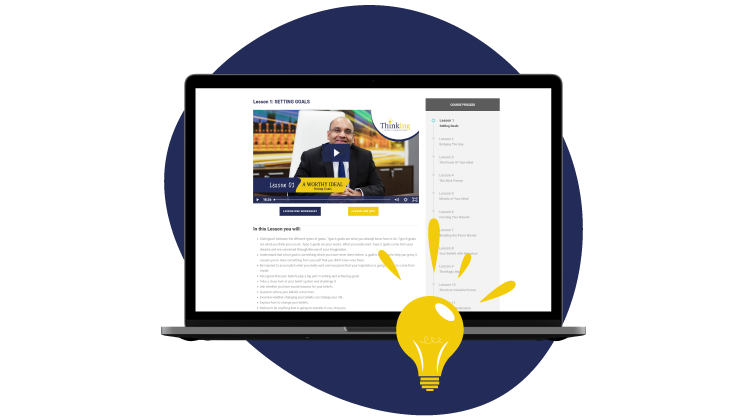 Thinking into Character
Thinking into Character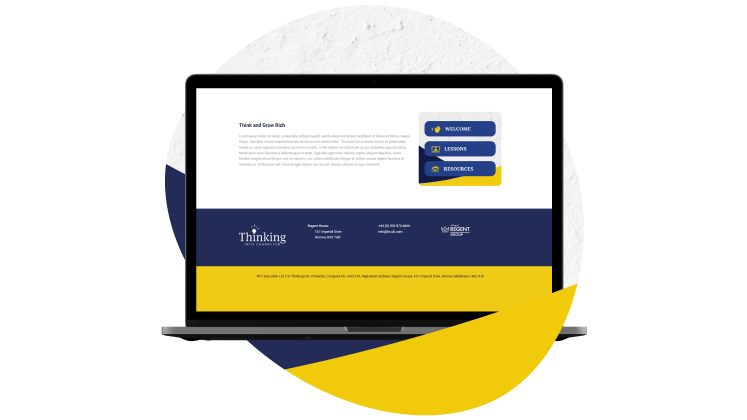 Think and Grow Rich
Think and Grow Rich The Mindset
The Mindset